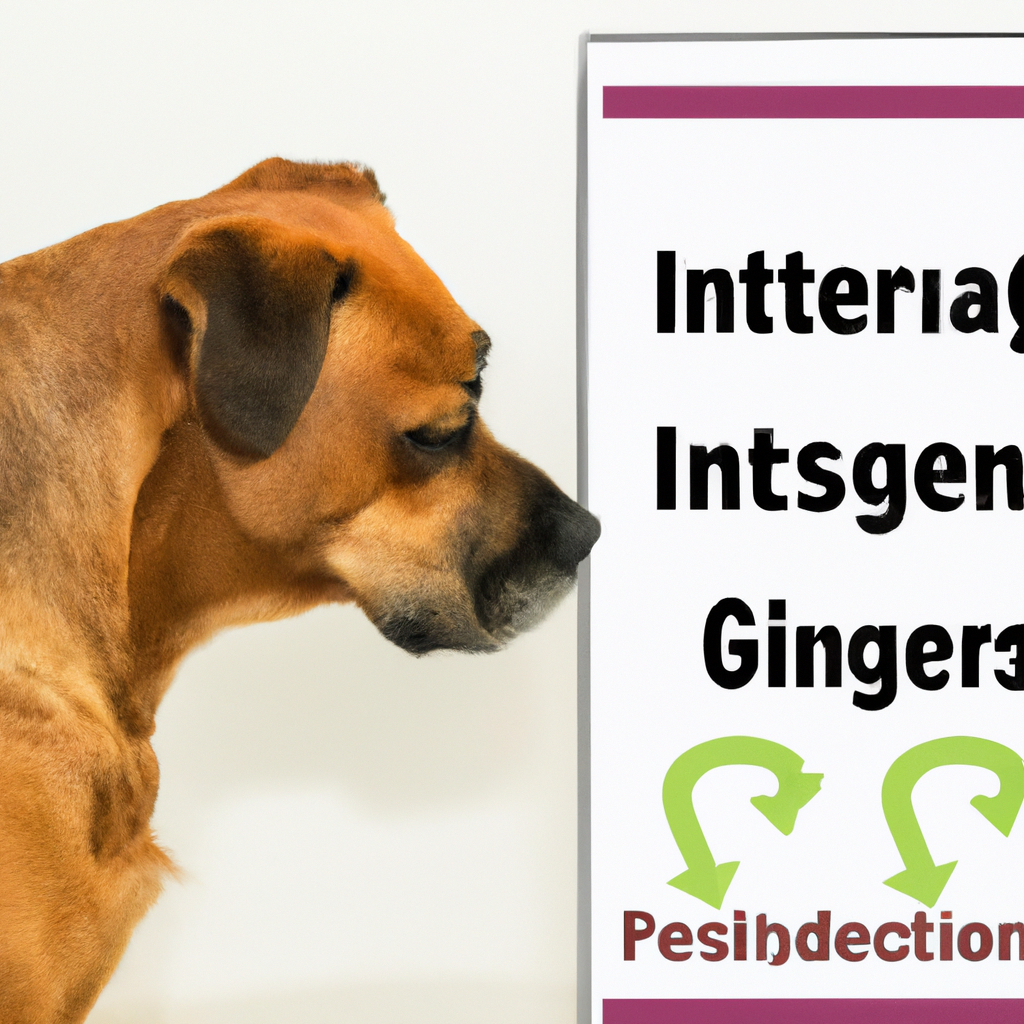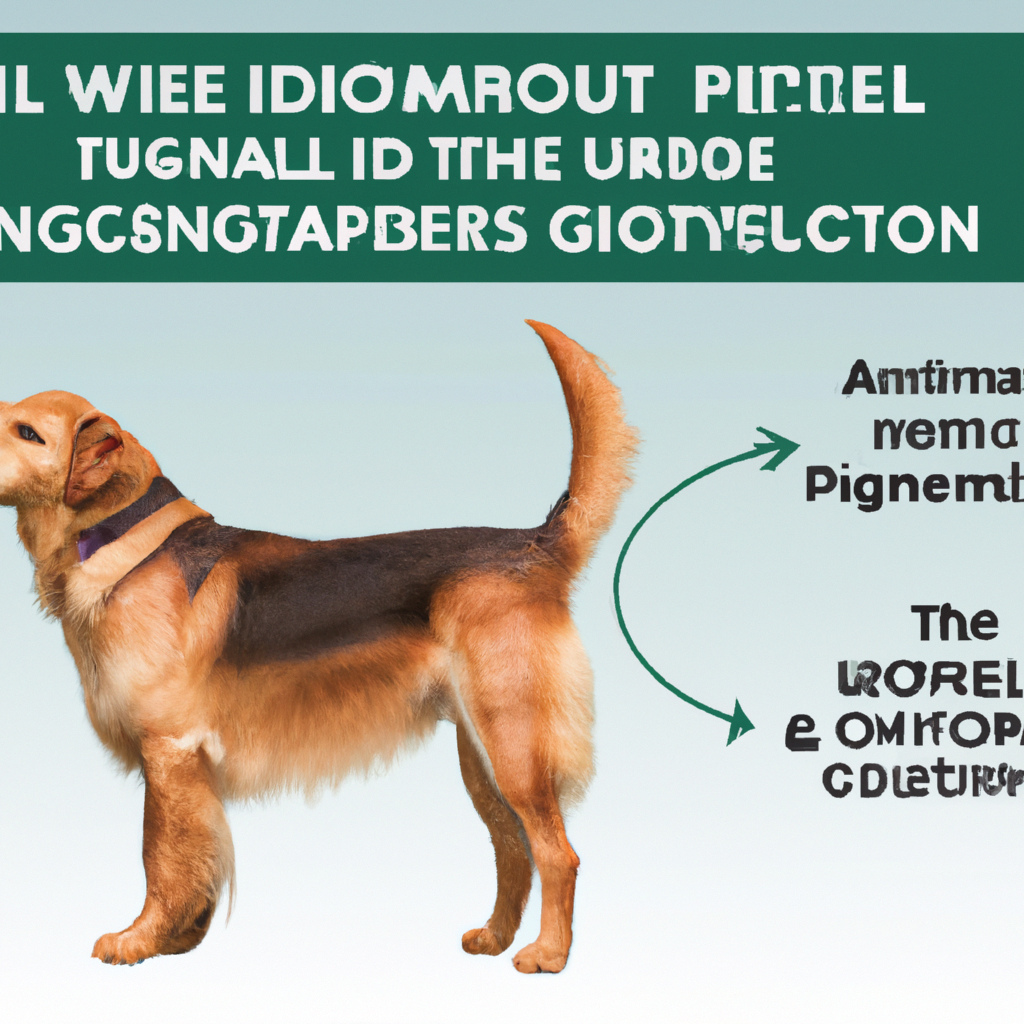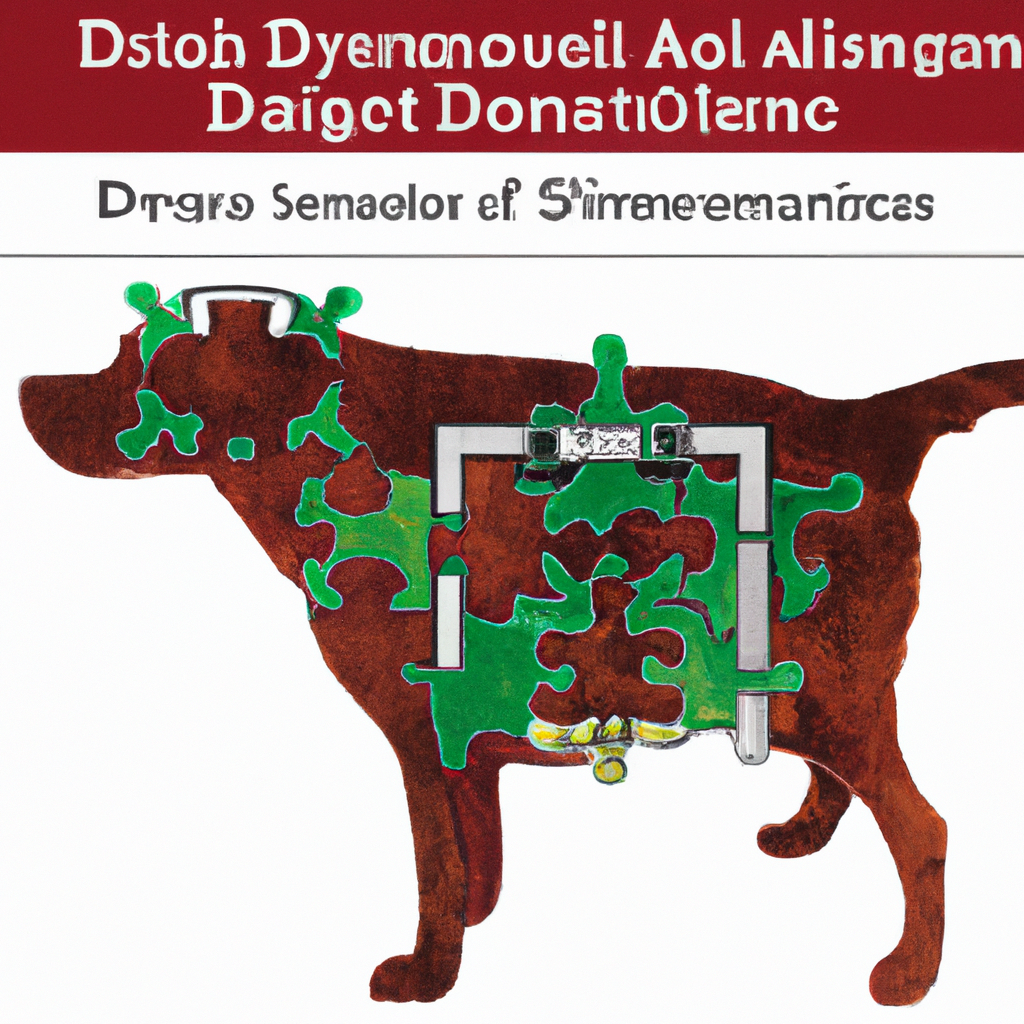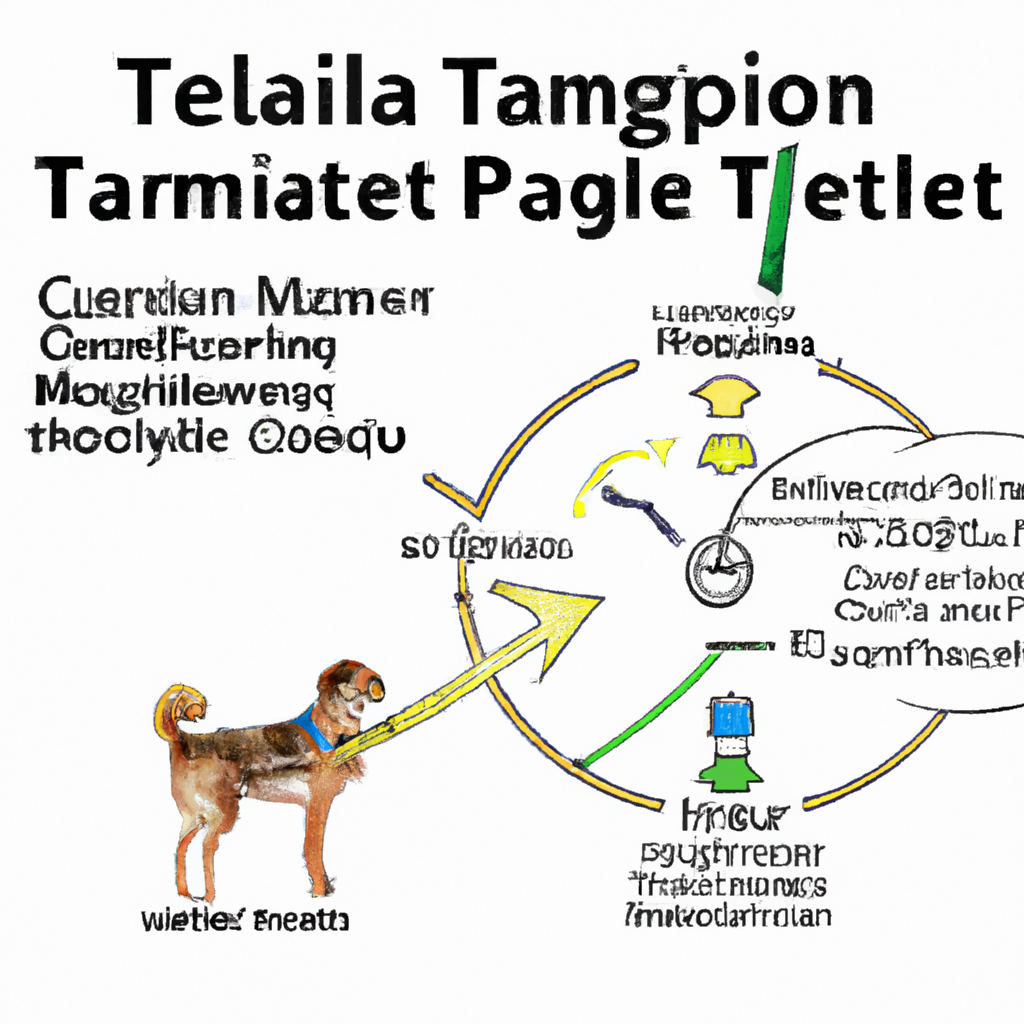Understanding and Managing Gastrointestinal Issues in Dogs
Title: "Unlocking the Enigma: Deciphering the World of Canine Digestion" Excerpt (190 characters): Beneath every wagging tail lies a

Title: The Dynamic Digestive Odyssey: Unraveling the Canine Gut
Introduction:
In the mystifying realm of man’s best friend lies a fathomless saga that often goes unnoticed beneath their wagging tails and gleaming eyes. Yes, you guessed it right – we are about to embark on a journey deep into the mesmerizing world of canine gastrointestinal issues. Now, before you wave this off as just another mundane topic, let us assure you that within this endless abyss, there lies a wealth of fascinating tales to be unraveled, providing key insights on understanding and managing the health of our furry companions.
Like us, dogs are immeasurably affected by the well-being of their delicate tummies. Unfortunately, their inability to communicate precisely what troubles them can leave us perplexed, as if deciphering a secret code. Nonetheless, fret not! Armed with insightful knowledge and an unwavering commitment, we can inch closer to decoding the intricacies of their gastrointestinal inadequacies, ultimately providing them with the care they desperately need.
From the rumbling rollercoaster ride that initiates with a growling belly, to the mysterious realm of indigestion and bloating – we shall traverse the remarkable universe of canine gastrointestinal ailments together. By delving into the various conditions that can plague our canine companions, we aim to illuminate the darkness that shrouds their discomfort, empowering you with the tools necessary to nourish their bellies back to their vibrant selves.
In this article, we will embark upon this enlightening expedition by unraveling common gastrointestinal issues afflicting our beloved dogs. From colitis and gastritis to canine gastroenteritis and even irritable bowel syndrome, we intend to shine a light on these ailments, examining their symptoms, causes, and potential methods for effective management. Armed with this newfound knowledge, you will be better prepared to detect the signs, take preventive measures, and most importantly, provide your canine companion with the care and comfort they deserve.
So, fellow guardians of the boundless canine spirit, buckle up as we embark on this awe-inspiring odyssey, where we delve deep into the labyrinth of the canine gut. Together, we shall unveil the secrets behind understanding and managing gastrointestinal issues in dogs, transforming our bond with our furry friends into an everlasting journey of health and happiness.
Understanding the Complexities of Gastrointestinal Issues in Dogs: Unveiling the Common Causes and Symptoms
Gastrointestinal issues in dogs can be a complex matter, with various causes and symptoms that can leave pet owners puzzled. It is important to have a clear understanding of these complexities in order to provide the best care for our furry friends. Let’s uncover the common causes and symptoms that can be attributed to gastrointestinal problems in dogs.
Common Causes:
- Dietary Changes: Abrupt changes in diet or introducing new food can be a major trigger for gastrointestinal distress.
- Food Intolerances and Allergies: Dogs, just like humans, can develop sensitivities to certain ingredients in their food, which can cause digestive upset.
- Bacterial or Viral Infections: Infections such as gastroenteritis can wreak havoc on a dog’s digestive system, leading to vomiting, diarrhea, and discomfort.
- Gastrointestinal Blockages: Dogs are notorious for ingesting objects they shouldn’t, such as toys, socks, or even rocks, which can cause serious gastrointestinal issues.
Common Symptoms:
- Vomiting: This is a typical sign of gastrointestinal problems and can range from occasional regurgitation to persistent vomiting.
- Diarrhea: Loose stools or watery bowel movements can indicate an upset stomach in dogs. It is crucial to monitor the frequency and consistency of their stools.
- Loss of Appetite: When a dog consistently refuses to eat or shows disinterest in food, it may be a sign of gastrointestinal discomfort.
- Abdominal Pain and Bloating: Dogs experiencing gastrointestinal issues may exhibit signs of discomfort such as a swollen or tender abdomen.
Understanding the complexities of gastrointestinal issues in dogs empowers us to identify potential causes and recognize the symptoms, enabling us to seek appropriate veterinary care when needed. Remember, it’s essential to consult a veterinarian for a proper diagnosis and treatment plan tailored to your pet’s specific needs.

Unraveling the Puzzle: Diagnostic Techniques and Tests for Identifying Gastrointestinal Disorders in Dogs
Identifying Gastrointestinal Disorders in Dogs: The Puzzle Unraveled
When it comes to our furry friends, unraveling the mystery behind gastrointestinal disorders can be like solving a complex puzzle. Fortunately, there are several diagnostic techniques and tests available that can shed light on these issues and help veterinarians provide the best care for our canine companions. Here, we explore some of the most common methods used to identify gastrointestinal disorders in dogs.
Physical Examination and Medical History
The first step in diagnosing a gastrointestinal disorder is often a thorough physical examination by a skilled veterinarian. During this examination, the vet will check for any visible signs of distress or discomfort, such as weight loss, abnormal bowel movements, or bloating. They will also review the dog’s medical history, asking the owner about any recent dietary changes, exposure to toxins, or previous digestive issues. This initial assessment can provide valuable clues regarding the dog’s overall health and help guide further diagnostic steps.
Diagnostic Imaging
To gain a clearer picture of what’s happening inside a dog’s digestive system, veterinary professionals may utilize various imaging techniques. X-rays can be used to detect any abnormalities in the structure and position of the gastrointestinal tract, such as obstructions or foreign objects. Ultrasound is another valuable tool that allows veterinarians to visualize the internal organs, including the stomach, intestines, and liver, helping to identify potential tumors, inflammation, or issues with blood flow. These non-invasive imaging tests aid in determining the extent and nature of the gastrointestinal disorder, ensuring accurate and targeted treatment plans.

Tailoring Treatment Plans: Effective Management Strategies for Canine Gastrointestinal Issues
When it comes to addressing gastrointestinal issues in our furry companions, a personalized and tailored approach is vital for successful management. Each dog is unique, presenting a diverse range of symptoms and underlying causes. To effectively tackle these challenges, veterinarians prioritize understanding the individual needs of each canine patient. Here, we delve into some valuable strategies that assist in devising customized treatment plans, ensuring optimal care and well-being for our four-legged friends.
Evidence-based Nutrition:
1. Diet modification: Implementing a specialized diet tailored to address specific gastrointestinal disorders can be paramount in managing symptoms and improving overall health. Some key considerations may include:
- Identifying food allergies and intolerances through an elimination diet
- Introducing novel protein sources to minimize the risk of future reactions
- Using highly digestible and easily absorbed nutrients to alleviate further strain on the GI tract
2. Probiotics and prebiotics: Adding these beneficial bacteria and nourishing fibers to the diet can promote a healthy gut microbiome, leading to improved digestion, reduced inflammation, and enhanced nutrient absorption.
Medication and Supplementation:
In addition to dietary adjustments, medications and supplements can play a crucial role in managing canine gastrointestinal issues:
- Gastroprotectants: These medications protect the delicate lining of the stomach and intestines, helping to alleviate discomfort and prevent further damage.
- Pain relief: Depending on the severity of gastrointestinal issues, veterinarians may prescribe pain medications to alleviate discomfort and improve appetite.
- Digestive enzymes: In cases of malabsorption or pancreatic insufficiency, supplementing with digestive enzymes can aid in nutrient breakdown and absorption.

Tummy Troubles: Expert Recommendations for Mitigating Gastrointestinal Problems in Dogs
When it comes to our furry friends, nothing is more distressing than seeing them suffer from gastrointestinal problems. These issues can range from the occasional upset stomach to more severe conditions like gastritis or pancreatitis. To ensure your dog’s tummy stays healthy and happy, experts recommend the following:
- Feed a balanced diet: Opt for high-quality dog food that contains easily digestible ingredients and meets all their nutritional needs. Avoid foods with excessive fillers or artificial additives, as these can trigger digestive issues.
- Control portion sizes: Overeating can lead to indigestion and discomfort. Consult your veterinarian to determine the appropriate portion size for your dog’s breed, age, and activity level.
- Introduce dietary supplements: Probiotics can promote a healthy gut flora and improve digestion. Consult a vet for recommendations on the appropriate supplements suitable for your dog.
Additionally, taking preventive measures can help alleviate gastrointestinal problems in dogs. Make sure your pup has access to clean, fresh water and avoid sudden changes in their diet, as these can cause digestive upset. Regular exercise and maintaining a stress-free environment also contribute to a healthy digestive system. If your dog’s tummy troubles persist or worsen, it is vital to seek immediate veterinary attention to rule out any underlying health conditions.
Concluding Remarks
As we bid farewell to this journey through the intricate world of understanding and managing gastrointestinal issues in our beloved canine companions, we embark on a path paved with newfound knowledge and empathy. Just like the intricate harmony of an orchestra, the symphony of the gastrointestinal system orchestrates the delicate balance of health and wellbeing for our furry friends.
Throughout this enlightening exploration, we have delved deep into the mysterious complexities of the canine gut, decoding its language and deciphering its whispers. As we dug into the earthy soil of this subject, we uncovered the root causes and symptoms of gastrointestinal issues that may afflict our loyal companions. Armed with this understanding, we can now traverse the winding roads of their digestive highways with greater confidence and grace.
Whether it was battling the wily foe known as diarrhea or navigating the intricate dance of food allergies, we have learned that managing gastrointestinal issues in dogs requires a blend of scientific understanding and emotional intuition. It is a delicate dance in which we must tread softly, listening to the murmurs of their tummies and responding with kindness and compassion.
No longer will the fear of gastrointestinal distress plague us, for we have become masters of the art of prevention. We have learned to recognize the telltale signs, to nourish their bodies with wholesome diets, and to consult with the wise healers of veterinary medicine when needed. Armed with this arsenal of knowledge, we can now stride confidently through the maze of gastrointestinal challenges, leading our faithful friends toward vibrant health and happiness.
In bidding adieu to this chapter, let us not forget the profound bond we share with our furry companions. They have been our loyal confidants, our cuddle buddies, and our protectors. In return, it is our sacred duty to care for them in sickness and in health. As we navigate the turbulent waters of gastrointestinal issues, let us always remember to do so with a tender touch, offering love and solace amidst the storm.
And so, with hearts full of understanding and minds enriched with wisdom, we conclude this exploration of the mysterious world of gastrointestinal issues in dogs. Let us now wander forth, armed with empathy, curiosity, and a newfound appreciation for the labyrinthine systems that make our four-legged friends such miraculous creatures. As we bid adieu, let us embark on future endeavors with open minds and open hearts, ready to face any challenge that comes our way, knowing we have the knowledge to navigate the intricate terrains of their gastrointestinal health.






